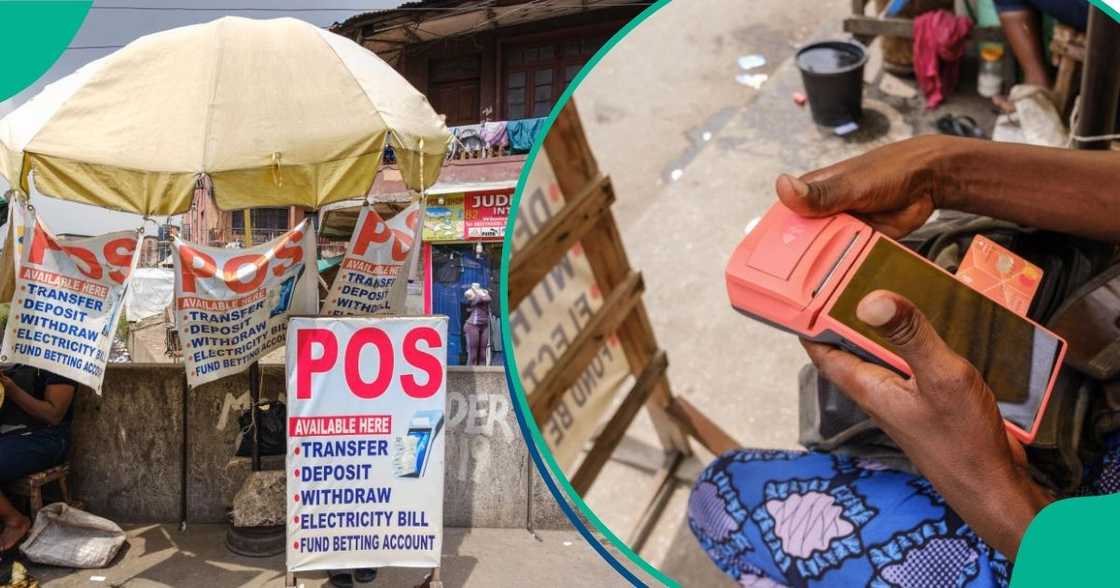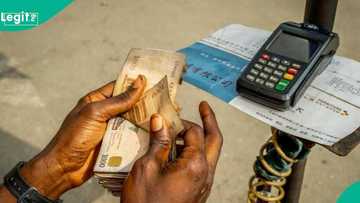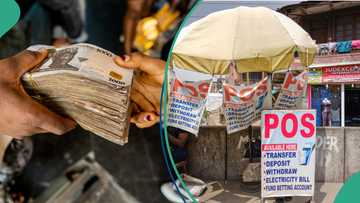CBN Sets October 2025 Deadline for Banks, Fintechs to Adopt ISO 20022, Geo-Tag PoS Terminals
- The Central Bank of Nigeria (CBN) has mandated banks, mobile money operators, and others to migrate to ISO 20022 by October 31, 2025
- The move aims to strengthen the payment ecosystem and plug the vulnerability exploited by fraudsters
- CBN also mandated the players in the financial sector to geo-tag all Point-of-Sale terminals for easy location
Legit.ng’s Pascal Oparada has reported on tech, energy, stocks, investment and the economy for over a decade.
The Central Bank of Nigeria (CBN) has issued a new directive, mandating all banks, mobile money operators, super agents, and other licensed players in the payment sector to migrate to the ISO 20022 payment messaging standard and geo-tag all Point-of-Sale (PoS) terminals by October 31, 2025.
What is ISO 20022?
ISO 20022 is an open global standard for electronic data interchange of financial information, providing a common platform and a standardised vocabulary (data dictionary) for financial messages.

Source: Twitter
It was developed by the ISO Technical Committee 68, enabling financial institutions to develop message models using a common approach, facilitating interoperability and the efficient exchange of complex data across different systems.
The new CBN directive aligns with the domestic financial system with international standards and is also aimed at curbing rising fraud cases across Nigeria’s electronic payment ecosystem.
CBN explains the reasons for the new order
The financial sector regulator said that fraudulent practices by unscrupulous PoS agents and the abuse of the payment devices have caused weaknesses that demand monitoring, making geo-fencing and standard messaging essential to restoring confidence in the retail payment system.
According to a circular by the Director of the Payments System Supervision Department of the CBN, Rakiya Yusuf, all payment transaction messages exchanged domestically and internationally must now be formatted in ISO 20022.
The circular noted that the move will ensure standardised, high-quality data with accurate identifiers for payers, payees, merchants, and agents.

Read also
N900bn Boost: Nigeria’s banking sector set for fresh capital inflow as recapitalisation heats up
The apex bank disclosed that this standard would boost compliance with international benchmarks, improve transparency, and make it difficult for fraudsters to exploit vulnerabilities in payment messaging.
Why PoS terminals must be geo-tagged
Regarding the geo-tagging, CBN directed all existing and newly built payment terminals to have native geolocation services enabled with double-frequency GPS receivers to ensure reliable positioning.
It said that each device must be registered with a Payment Terminal Service Aggregator (PTSA), showing accurate latitude and longitude coordinates of the merchant or agent location.
Also, the bank noted that Android Operating System v10 is the OS needed across all terminals to allow for compatibility and integration with the National Central Switch Geolocation (SDK).
CBN issues new location rule
According to a report by Market Forces Africa, CBN said geolocation data must be captured at transaction initiation and included in the message payload as a mandatory reporting field.
A prior report by Legit.ng disclosed that, in addition to the geo-tagging, CBN also issued a 10-metre location rule for all PoS operators.
The bank said all operators or agents must stay within a 10-metre radius of their registered address.

Source: Getty Images
Experts have said the new raft of rules by the CBN will significantly reduce fraud and ransom money, which is facilitated by rogue PoS agents.
CBN to lock out PoS operators' machines
Legit.ng earlier reported that CBN has ordered banks and fintechs to geo-tag over 4 million PoS terminals.
Starting soon, any POS machine used outside its registered location will be shut down.
In plain terms, no more moving terminals around to do business in multiple places, and security agencies will be able to easily track fraud.
Source: Legit.ng




